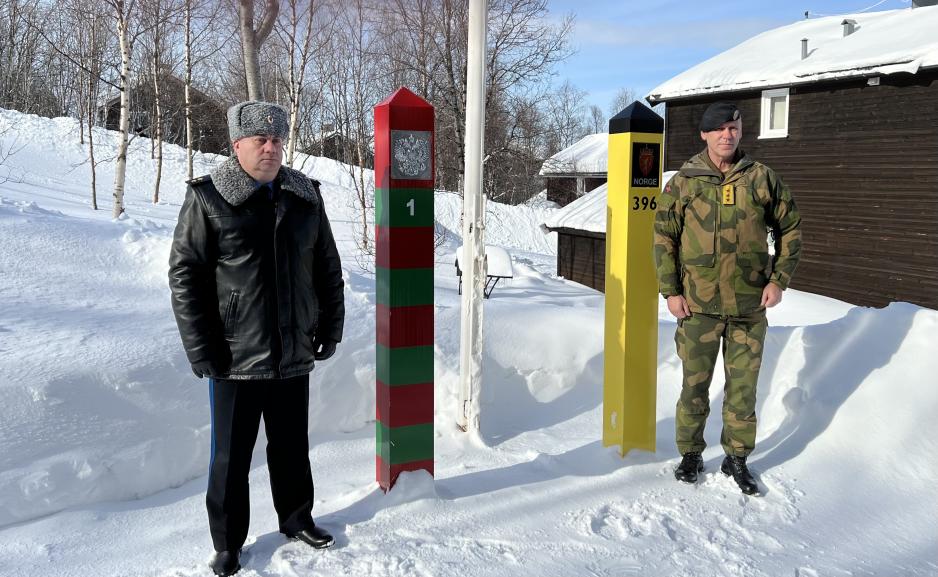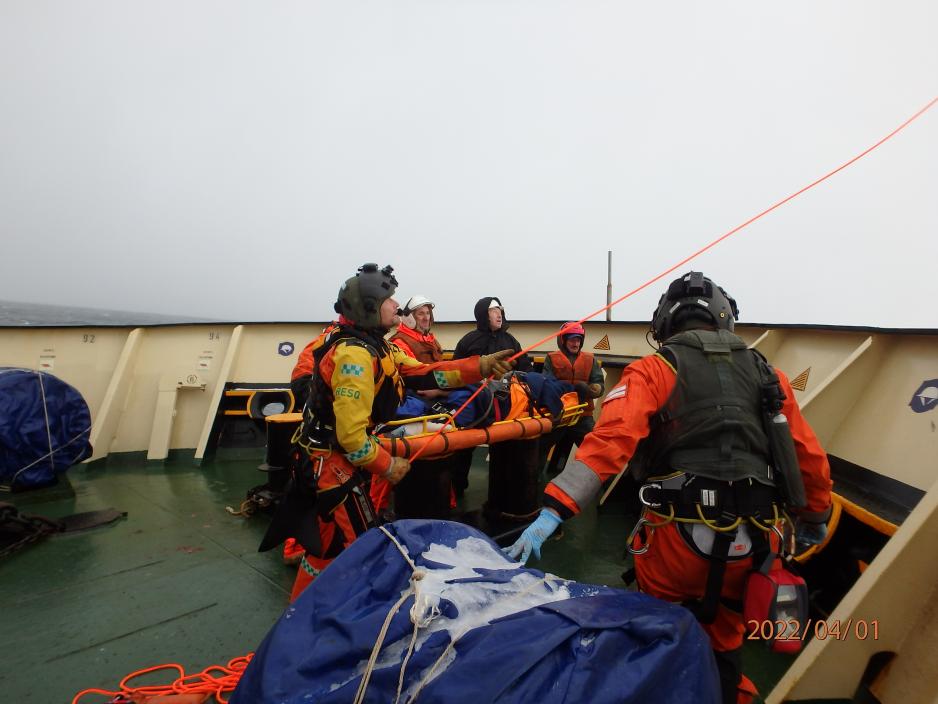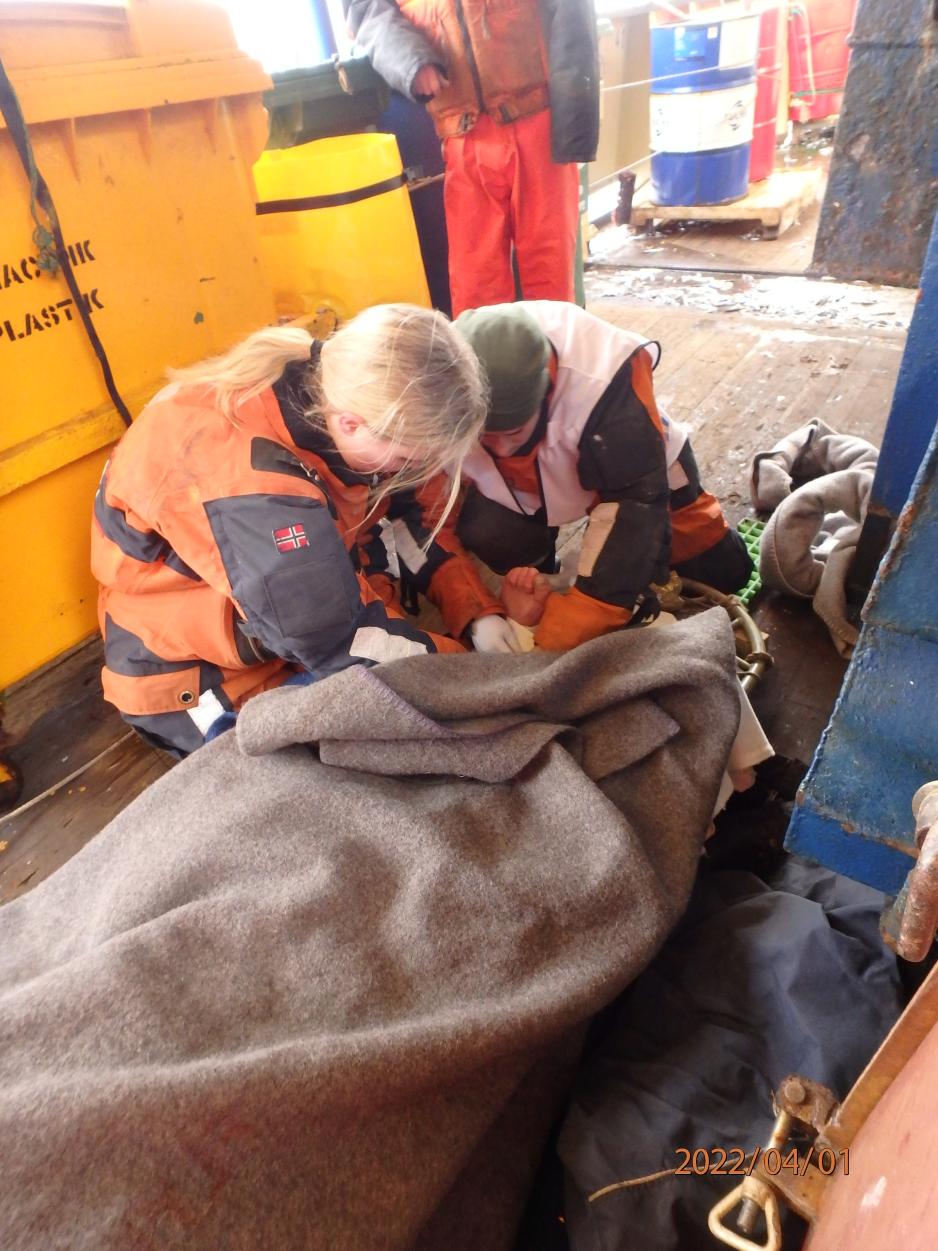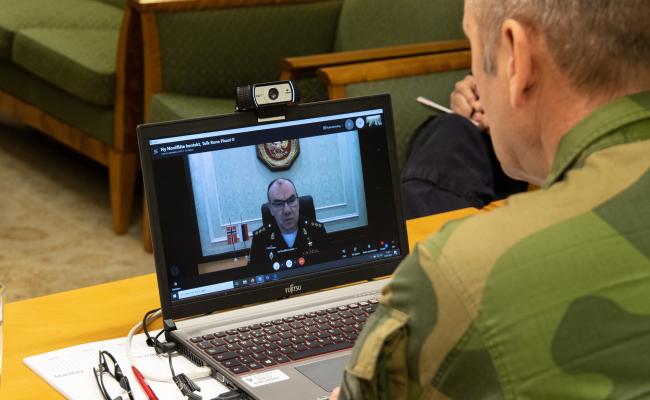Norwegian-Russian Border Cooperation Works Well Despite the War in Ukraine

Norwegian-Russian co-ordination is vital for preventing potential misunderstandings and promoting stability in the North, the Norwegian Armed Forces point out. Pictured here, the recent meeting at Boris Gleb between the Chief of the FSB Border Directorate in Russia’s western Arctic region Stanislav Maslov and Chief of the Norwegian Joint Operations Headquarters Yngve Odlo. (Photo: Runar S. Røssevold,
Last week, the Chief of the Norwegian Joint Operations Headquarters met with the Chief of the FSB Border Directorate. The meeting took place on the Russian side of the border and covered co-ordination about coast and border guards as well as SAR (search and rescue) in the border areas.
Last Thursday, Lieutenant-General Yngve Odlo, Chief of the Norwegian Joint Operations Headquarters (JOH) traveled to Russia to meet with Lieutenant-General Stanislav Maslov, Chief of the FSB Border Directorate, the Norwegian Armed Forces writes in a press release.
The border meeting took place in Boris Gleb, some five kilometers from the border station between Norway and Russia.
The agenda included Norwegian-Russian co-ordination of activities related to the Coast Guard, the border patrol, as well as search and rescue in the High North.
“The meeting was constructive and was conducted in a professional manner with respect for each other’s missions”, says Lieutenant-Colonel and Spokesperson of the JOH Ivar Moen.
There is broad agreement that a stable, predictable relationship in the High North serves both parties.
Regular border meetings
Ever since the Russian annexation of the Crimea in 2014, Norway has – just like NATO, suspended all military cooperation with Russia.
Bilateral cooperation activities related to coast and border guard, search and rescue, as well as oil spill protection preparedness, have been shielded from this suspension.
The last time Odlo and Maslov met was in Kirkenes last fall. They then led the first protocol meeting between the JOH and the FSB Border Directorate since the autumn of 2019, as the Corona pandemic had made it hard to meet in person.
Speaking about the recently held meeting, Moen says “There is broad agreement that a stable, predictable relationship in the High North serves both parties well; as do the maintaining of communication channels and the continuation of agreements on which this border cooperation is founded.”
There are three annual meetings between delegations from the JOH and the FSB Border Directorate for Russia’s western Arctic region.
The cooperation between the two parties was established in 1994 and has developed much since then, according to the Norwegian Armed Forces.
This co-ordination is important both to prevent misunderstandings and to promote stability in the region, also in the current situation.
Important prevention
The interaction between the JOH and the Russian Border Directorate are part of a well-established border cooperation between Norway and Russia based on a border demarcation agreement between the two countries dating back to 1949.
The agreement facilitates open and good dialogue between the border control forces as well as the Border Commissioners on both the Norwegian and the Russian side, respectively.
“This co-ordination is important to prevent misunderstandings and promote stability in the region, also in the current situation”, the Norwegian Armed Forces write, in light of the Russian invasion of Ukraine.
The purpose of the said agreement is to secure orderly conditions at the Norwegian-Russian border. It established measures aimed at preventing conflict situations as well as appropriate approach methods for settling disputes if any were to arise.
Well-functioning interaction in the High North
Last Friday, the Norwegian Coast Guard vessel KV Jarl contributed with medical assistance to a seriously injured fisher onboard a Russian trawler.
Upon the trawler’s request, the Coast Guard vessel’s health care team was sent over and contributed with treatment and stabilization of the patient, who was subsequently transported to Hammerfest hospital in Norway by way of the SAR Queen rescue helicopter, which is based at the air defense base at Banak, Lakselv.
“This is a concrete example of Norwegian-Russian co-operation that works quite well in the High North”, Ivar Moen at the JOH states.

The patient about to be lifted up into the SAR Queen helicopter from Banak air base. (Photo: Norwegian Coast Guard)
Well-developed interaction
The Norwegian-Russian coast guard collaboration in a broader context spans across fish management, search and rescue, oil spill protection preparedness, shipping monitoring, as well as mutual alarming and information exchange about conditions that may constitute a threat to shared environment and natural resources, such as e.g. illegal activities.
Since 1988, Norway and Russia have conducted the Exercise Barents annually in the Barents region, for joint training and exercise in the field of search and rescue, as well as fighting oil spill pollution. The last exercise in this series was conducted last summer.
The planning meeting for this year's exercise has been postponed. Thus, it is not yet clear whether or not it will take place in June, as originally scheduled, says Tore Wangsfjod, acting Head of Division at the Joint Operations Coordination Center for Northern Norway.
"Operational cooperation with Russian in the field of search and rescue works just like normal", Wangsfjord points out.
The border guard cooperation between Norway and Russia consists of a.o. regular contact between the border commissioners, and by the countries’ respective border guards conduct joint patrols to make sure bilateral agreements as well as regulations are upheld along the border.
Also read
This article was originally published in Norwegian and has been translated by HNN's Elisabeth Bergquist.





